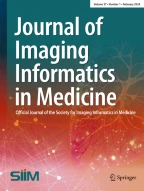Abstract
Colorectal cancer (CRC) is a major global health concern. Its early diagnosis is extremely important, as it determines treatment options and strongly influences the length of survival. Histologic diagnosis can be made by pathologists based on images of tissues obtained from a colonoscopic biopsy. Convolutional neural networks (CNNs)—i.e., deep neural networks (DNNs) specifically adapted to image data—have been employed to effectively classify or locate tumors in many types of cancer. Colorectal histology images of 28 normal and 29 tumor samples were obtained from the National Cancer Center, South Korea, and cropped into 6806 normal and 3474 tumor images. We developed five modifications of the system from the Visual Geometry Group (VGG), the winning entry in the classification task in the 2014 ImageNet Large Scale Visual Recognition Competition (ILSVRC) and examined them in two experiments. In the first experiment, we determined the best modified VGG configuration for our partial dataset, resulting in accuracies of 82.50%, 87.50%, 87.50%, 91.40%, and 94.30%, respectively. In the second experiment, the best modified VGG configuration was applied to evaluate the performance of the CNN model. Subsequently, using the entire dataset on the modified VGG-E configuration, the highest results for accuracy, loss, sensitivity, and specificity, respectively, were 93.48%, 0.4385, 95.10%, and 92.76%, which equates to correctly classifying 294 normal images out of 309 and 667 tumor images out of 719.
Similar content being viewed by others
References
Ferlay J, Soerjomataram I, Dikshit R, Eser S, Mathers C, Rebelo M, Parkin DM, Forman D, Bray F: Cancer incidence and mortality worldwide: Sources, methods and major patterns in GLOBOCAN 2012. Int J Cancer 136(5):E359–E386, 2015
Jung KW, Wong YJ, Kong HJ, Lee ES: Community of Population-Based Regional Cancer Registries: Cancer statistics in Korea: Incidence, mortality, survival, and prevalence in 2015. Cancer Res Treat 50:303–316, 2018
National Cancer Institute: Surveillance, Epidemiology, and End Results Program, Cancer Stat Facts: Colon and Rectum Cancer. Maryland, USA https://seer.cancer.gov/statfacts/html/colorect.html
Torre LA, Bray F, Siegel RL, Ferlay J, Lortet-Tieulent J, Jemal A: Global cancer statistics, 2012. CA Cancer J Clin 65(2):87–108, 2015. https://doi.org/10.3322/caac.21262
Teramoto A, Tsukamoto T, Kiriyama Y, Fujita H: Automated classification of lung cancer types from cytological images using deep convolutional neural networks. BioMed Res Int 2017. Accessed June 3, 2018. doi:https://doi.org/10.1155/2017/4067832
Bengio Y: Learning deep architectures for AI. Boston: Now Publishers, Inc., 2009
Nicholson CV, Gibson A. A Beginner’s guide to deep convolutional neural networks (CNNs). What’s the difference between artificial intelligence (AI), machine learning and deep learning?. Deeplearning4j: Open-source, Distributed Deep Learning for the JVM. Accessed June 04, 2018. https://deeplearning4j.org/convolutionalnetwork
Sirinukunwattana K, Ahmed Raza SE, Tsang Y-W, Snead DRJ, Cree IA, Rajpoot NM: Locality sensitive deep learning for detection and classification of nuclei in routine colon cancer histology images. IEEE Trans Med Imaging 35(5):1196–1206, 2016
Deng J, Dong W, Socher R, Li LJ, Li K, Fei-Fei L: ImageNet: A large-scale hierarchical image database. IEEE Conf Computer Vision Pattern Recogn (CVPR2009) 248–255, 2009
Simonyan K, Zisserman A: Very deep convolutional networks for large-scale image recognition, ICLR 2015. Available at https://arxiv.org/abs/1409.1556. Accessed June 10, 2017.
Anthimopoulos M, Christodoulidis S, Ebner L, Christe A, Mougiakakou S: Lung pattern classification for interstitial lung diseases using a deep convolutional neural network. IEEE Trans Med Imaging 35(5):1207–1216, 2016. https://doi.org/10.1109/tmi.2016.2535865
CS231n, Convolutional neural networks (CNNs / ConvNets). CS231n Convolutional Neural Networks for Visual Recognition. Available at http://cs231n.github.io/convolutional-networks/#case. Accessed October 10, 2017
Joshi P: What is local response normalization in convolutional neural networks. Perpetual Enigma. Available at https://prateekvjoshi.com/2016/04/05/what-is-local-response-normalization-in-convolutional-neural-networks/. Accessed October 02, 2017
Géron ACA: Hands-on machine learning with Scikit-Learn and TensorFlow: Concepts, tools, and techniques to build intelligent systems. California: O’Reilly Media, 2017
Numpy and Scipy Documentation. Available at https://www.numpy.org/. Accessed June 03, 2017
MathWorks. Machine Learning with MATLAB - Quantcast. Available at https://www.mathworks.com/campaigns/products/display/machine-learning-with-matlab.html?s_eid=PSB_16169. Accessed October 03, 2017
Large Scale Visual Recognition Challenge 2014. ImageNet Large Scale Visual Recognition Competition 2014 (ILSVRC2014). Available at http://www.imagenet.org/challenges /LSVRC/2014/results. Accessed October 01, 2017
Havaei M, Davy A, Warde-Farley D, Biard A, Courville A, Bengio Y, Pal C, Jodoin P-M, Larochelle H: Brain tumor segmentation with deep neural networks. Med Image Anal 35:18–31, 2017. https://doi.org/10.1016/j.media.2016.05.004
Tang S, Yuan Y. Object detection based on convolutional neural network, CS231n Stanford Final Writeup. Available at http://cs231n.stanford.edu/reports/2015/pdfs/CS231n_final_writeup_sjtang.pdf. Accessed June 02, 2017
Funding
This work was supported by the National Cancer Center (grant numbers NCC-1710070 and NCC-1511670) and the Chungcheongbuk-do Value Creation Program (through the Osong Medical Innovation Foundation of Korea, funded by the Chungcheongbuk-do). The funding sources had no role in the study design: in the collection, analysis, and interpretation of data; in the writing of the manuscript; or in the decision to submit the manuscript for publication.
Author information
Authors and Affiliations
Corresponding author
Ethics declarations
The study was conducted according to the principles of the Declaration of Helsinki and was approved by the institutional review board of our institution (NCC2016-0048). All patients provided written informed consent to participate.
Conflict of Interest
The authors declare that they have no conflict of interest.
Rights and permissions
About this article
Cite this article
Yoon, H., Lee, J., Oh, J.E. et al. Tumor Identification in Colorectal Histology Images Using a Convolutional Neural Network. J Digit Imaging 32, 131–140 (2019). https://doi.org/10.1007/s10278-018-0112-9
Published:
Issue Date:
DOI: https://doi.org/10.1007/s10278-018-0112-9
